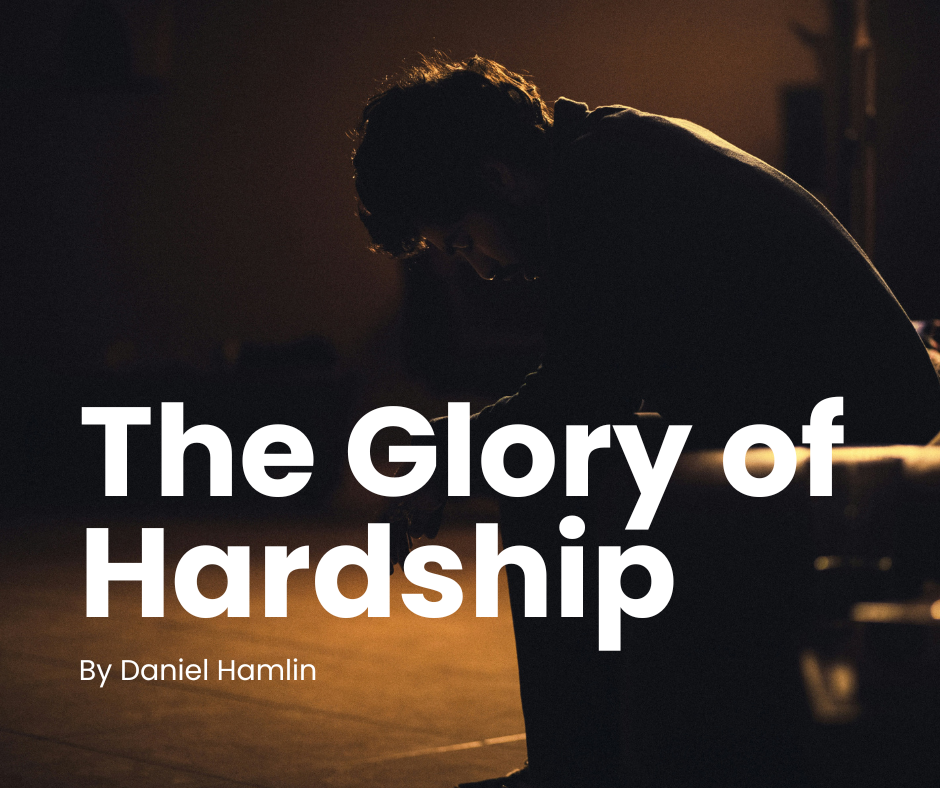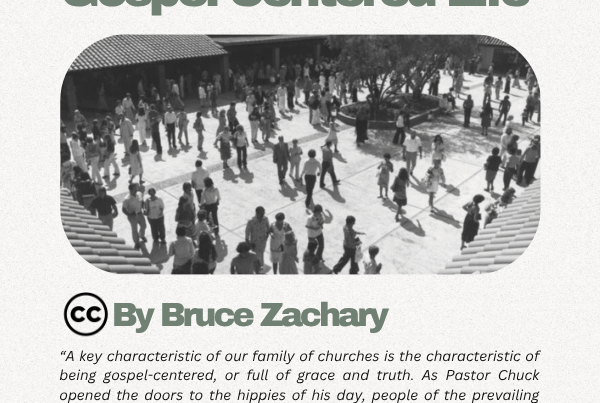
My mom’s 2023 wasn’t exactly a great year for her. In January, she had what was supposed to be a routine back surgery. This set off a domino effect of sorts. Immediately following the surgery, she began experiencing extremely intense pain. It was the result of a hematoma and fluid buildup on her spinal cord. This led to emergency surgery to avoid paralysis. Next, it was a dangerously high fever due to sepsis, which resulted in another near-fatal stay in the hospital. Shortly after that, she was rushed back to the hospital due to shortness of breath, the culprit this time being blood clotting on her lungs. At some point during one of her hospital stays, she contracted shingles. But not just your run-of-the-mill kind, the doctor stating it was one of the worst cases she’d seen. After six months of being in and out of the ICU, it seemed as though she was finally starting to recover and get back to a sense of normalcy. That’s when she tripped and cracked her vertebrae. Finally, while she was recovering from her fall, she came down with Covid—one last reminder of how 2023 treated her.
Recently, I asked my mom how she felt about last year. Her response wasn’t exactly what I was expecting. She said,
“You know, each time I’ve had to go to the hospital, I’ve felt the Lord’s hand holding me and sustaining me. It gave me an incredible amount of peace. I figured if He was in it with me, then there must be something He was teaching me through it.”
I was taken aback.
Her response made me ask some tough questions of myself. Mainly, would I have the same perspective if I were in her position? I’m not proud to say I don’t think I would. When I’m facing trials, my first reaction is usually to petulantly cry out in self-pity, “Why God? Why me?!” But in trying to become more Christlike, I realized her attitude is far more biblical and far more productive than mine.
My mom’s past year of trials also elicited in me a desire to look more closely at the apostle Paul and how he faced trials. Paul was a man well acquainted with hardship in life, so it seemed like the obvious place to start a study of this sort. One of the first things that stood out to me was what he considered to be success. The man did nothing that we would consider wrong, and yet he was arrested, denied a fair trial, imprisoned, and put on house arrest. Not to mention the other trials he faced, like physical assaults, gossip, false accusations, as well as literal shipwreck, among various other hardships. Amid all this, he writes to the Philippians, declaring, “…my circumstances have turned out for the greater progress of the gospel…” going on to conclude,
“For to me, to live is Christ and to die is gain.”
Paul was suffering, yet he doesn’t dwell on that fact. Instead, he wants the Philippians to know that his suffering resulted in the gospel reaching those who might not have heard it otherwise. His response tells us he believed in the sovereignty and sufficiency of God. He believed God was able to use his trials and suffering to advance the gospel, to bring something good and eternal from them. This means that Paul believed there was something more important, something more valuable than even himself or his own cause or his own comfort. He viewed his own suffering not in relation to his own comfort or prosperity; he viewed it in relation to what it meant for God’s eternal purpose.
To Paul, life was about more than just self. He was more concerned with Christ than even his own comfort. In my own life, I’ve found that suffering and trials tend to push us in one of two directions: we either become more self-focused and full of self-pity, or we become more Christ-focused and full of His grace. The latter is what we see in Paul’s life. Paul experienced the reality that Jesus really is capable of sustaining us in our suffering. As followers of Jesus, this is what we’re invited to experience in our hardships—the sustaining power of Christ.
Please don’t misunderstand me: this isn’t to diminish our suffering or pretend that life is always great. I’m not saying we should be happy when we experience suffering or we can’t be discouraged by it. And I’m certainly not condemning anyone depressed by current hardships. But what we see in Paul’s life, and what is a tremendous source of encouragement for us as Christians, is that God can redeem even our suffering. He can bring good out of it.
If Jesus is the source of our joy, then amid our suffering, we can still experience joy and peace. If health or finances or material things or relationships are the source of our identity and joy, then as soon as we lose them, we experience a sort of disillusionment and despair because we feel like we’re being pulled away from our source of life. This has led me to one of the most challenging realizations of my life, which is if I lose my joy and peace when things go wrong, then all I’m really testifying to is that I’ve the same source as the world does; I’ve just been using Jesus as my good luck charm. Essentially, what I’m saying is that it was never about my relationship with Jesus. It was just about what I could get from Him.
But if Jesus is our source, and we realize that in Him we have everything we need, then even if we experience suffering and things go wrong, we can still experience joy and peace in Him because He promised to never leave us or forsake us. This subsequently expresses to those around us that relationship with Jesus really is better than everything else. Again, this isn’t to say we can’t be devastated or heartbroken at loss and suffering. But if Christ is our source, then even loss and suffering won’t shipwreck us because we still have Jesus. Jesus gives us an eternal hope because we understand that suffering is temporary, but the love He offers is everlasting. A.W. Tozer puts it like this,
“The man who has God for his treasure, has all things in One.”
This understanding Paul has, this eternal perspective, allows him to ultimately conclude that “to live is Christ.” In other words, as long as he’s on earth, he intends to grow closer to Jesus. Paul had an unshakeable peace regardless of what he faced in life or even in death because he knew he had Christ. Another individual with this eternal perspective was the missionary Hudson Taylor. Taylor faced all sorts of hardships in life. His first wife died, four of his children died, he was plagued with health issues, and he faced numerous other issues while on the mission field. Yet he said,
“It is no small comfort to me to know that God has called me to my work, putting me where I am and as I am. I have not sought the position, and I dare not leave it. He knows why He places me here—whether to do, or learn, or suffer. I am no longer anxious about anything, as I realize that He is able to carry out His will for me. It does not matter where He places me, or how. That is for Him to consider, not me, for in the easiest positions He will give me grace, and in the most difficult ones His grace is sufficient.”
Both Paul and Taylor write from a place of loss and pain and difficulty. Their lives were hard and often unfair, and I’m not at all trivializing this reality. And I’m certainly not trivializing the hardships some might be facing. Yet Paul shows us that he doesn’t measure his circumstances and life by the standards of this world. He understood that God can take even the bad stuff, even the hardship and unfairness, and produce eternal goodness and glory from it. Paul is saying he has something bigger than his own comfort that he’s living for and judging success by. And that something bigger is Jesus. I hope and pray that the next time I experience suffering or hardship, I’ll face it with this same type of eternal perspective.
For more from Daniel Hamlin visit www.danielhamlin.org










